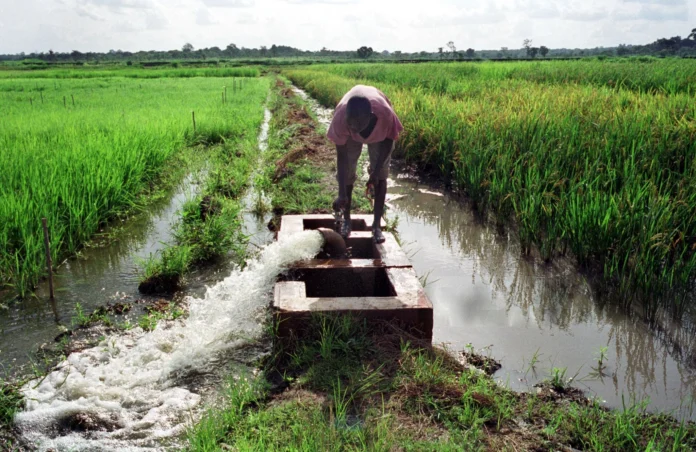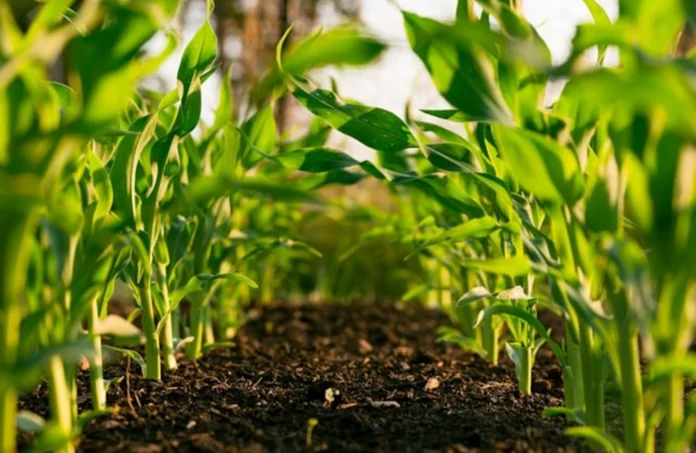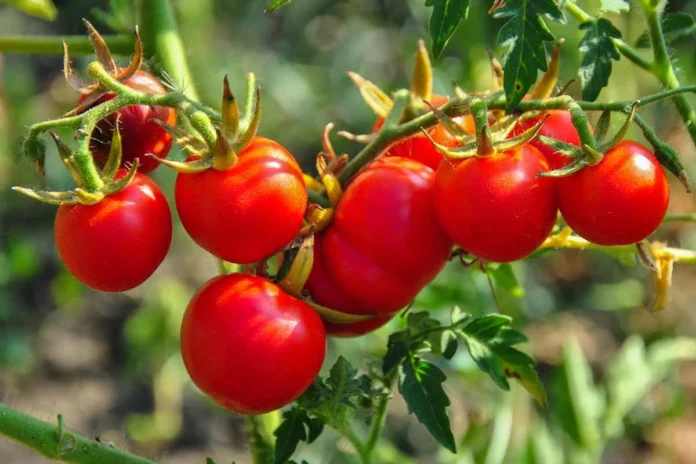Nadia Fatima Zahra, Arabfields, Yamoussoukro, Ivory Coast — In the heart of West Africa, Côte d’Ivoire stands as a agricultural powerhouse, boasting vast reserves of raw materials that fuel both its economy and global markets. As the world’s leading producer of cocoa, accounting for around 45% of global supply, the country also excels in cashew nuts, cotton, and a variety of market gardening crops like tomatoes, eggplants, and peppers. Agriculture contributes significantly to the nation’s GDP, hovering at approximately 17.92% in 2024, with projections for continued growth amid efforts to boost climate-smart production by 30% by the end of 2025. Yet, beneath this bounty lies a pressing challenge: an exodus of young people from rural areas to urban centers in search of better opportunities, exacerbating labor shortages and threatening the sustainability of the sector. With youth unemployment rates reaching 25% nationwide, and rural youth facing barriers like limited access to training, financing, and modern techniques, the question looms large, how can Côte d’Ivoire attract and retain its young population in agriculture?
This dilemma is not unique to Côte d’Ivoire but echoes across sub-Saharan Africa, where rural-urban migration has left aging farmers struggling with soil degradation, climate change impacts, and volatile market prices. In response, innovative programs are emerging to empower the next generation. One such initiative is the Lycée Professionnel Sectoriel de Formation aux Métiers Agricoles de Botro, a vocational agricultural high school in the central region near Bouaké, which has been offering free training in market gardening for the past two years. Spanning 25 hectares, with 20 dedicated to hands-on production fields, the school represents a beacon of hope for rural youth, blending practical skills with entrepreneurial mindset to combat the sector’s challenges.
Nestled in the department of Botro, the school opened its doors amid ongoing construction that reached 79% completion by late 2024, with full operations anticipated by February 2025. Funded in part through government initiatives and international partnerships, such as the FAR-Botro project aimed at creating sustainable agricultural training systems, it targets local youth aged 14 to 40 with at least a primary school education (CM2 level). The curriculum emphasizes market gardening, cultivating high-value vegetables like tomatoes, cucumbers, zucchinis, and eggplants, on a 20-hectare “champ-école” (school field) that serves as both classroom and laboratory.
Junior N’Guessan, a student at the school, meticulously inspects rows of vibrant purple eggplants under the tropical sun. “When we arrived here, we learned how to properly space the plants to ensure good airflow,” one of his classmates explains. “Before, we didn’t know the right times for fertilizers or treatments. But they’ve shown us precise steps: on this date, do this; on that date, do that. And when you follow it, you see the success.” This structured approach covers the fundamentals of agriculture, from nursery maintenance and land preparation to harvest monitoring, all designed to equip students with the tools for profitable farming.
Karidioula Peguegnami, the school’s director, underscores the program’s entrepreneurial focus. “It’s essential to master every stage of production up to the harvest to make the activity profitable,” he says. “We’re guiding them to become agricultural entrepreneurs because that’s what’s missing in our sector.” In a country where smallholder farmers often grapple with diseases, aging plantations, and declining soil fertility, this training addresses critical gaps by integrating modern practices, such as climate-resilient techniques and value chain management.
The school’s impact is evident in its graduates. Isaac Kouakou, from the inaugural cohort and the son of a farmer, now runs his own operation cultivating tomatoes, carrots, and onions. Drawing on parental advice and the school’s theoretical lessons, he has revolutionized his sales strategy. “Our parents often produce first and then look for buyers. When that happens, people come and buy at rock-bottom prices,” he notes. “We’re focusing on those parameters, finding partners before planting, so sales become easier.”
Véronique, a young woman in her twenties, applies similar tactics to her pepper cultivation. “Growing peppers doesn’t take much time,” she explains. “With the techniques we’ve learned, it won’t be too complicated. I chose peppers because they’re profitable, a sack sells for 36,000 CFA francs (approximately $60 USD).” Her choice reflects market savvy, as peppers and other vegetables offer quick returns in a sector where cocoa farmers, for instance, battle low global prices and climate-induced yield drops.
More than half of the first two graduating classes are now actively engaged in farming, a promising statistic in a region where fewer than 20% of young farmers receive adequate training or financing. However, these budding entrepreneurs face significant obstacles. Chief among them is the lack of trust from banks, which hesitate to provide loans for production due to perceived risks in agriculture. This financing gap mirrors broader issues in Côte d’Ivoire, where smallholders contend with climate vulnerabilities, market inequalities, and limited access to resources.
The Botro school is part of a larger ecosystem of efforts to harness rural youth potential. International organizations like the World Food Programme (WFP) support women and youth through land restoration and agricultural value chains, while the African Development Bank (AfDB) has funded projects improving rural livelihoods and youth integration. The Food and Agriculture Organization (FAO) aids in responsible investments, and initiatives like the International Fund for Agricultural Development (IFAD) emphasize youth in agribusiness to revitalize economies.
Innovations, such as robotics competitions for farm tech, aim to make agriculture appealing to tech-savvy youth, countering the allure of urban jobs. In aquaculture, young farmers are revitalizing fish farming with sustainable methods, addressing similar retention challenges. Yet, gaps persist: research highlights inadequate support for rural youth, from education to market access, underscoring the need for scaled-up interventions.
As Côte d’Ivoire’s economy grows at a projected 6.2% in 2025, driven by hydrocarbons and services, agriculture’s role may evolve, potentially shrinking to 6.6% of GDP by 2043. But for rural communities, programs like Botro’s offer a blueprint for sustainability. By fostering entrepreneurs who prioritize partnerships, efficiency, and resilience, Côte d’Ivoire could not only stem youth migration but also secure its agricultural future. The success of these young farmers will depend on overcoming financing hurdles and adapting to global pressures, but with initiatives like this, the seeds of change are already taking root.












